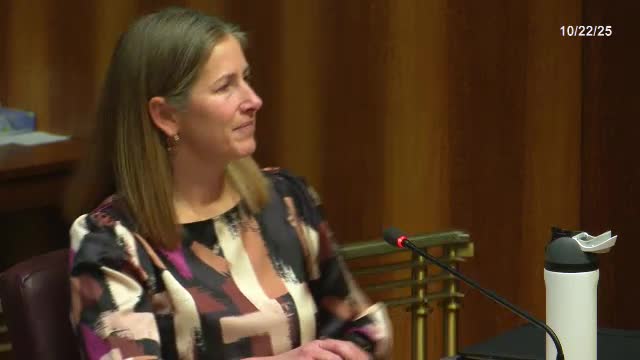HRA staff propose QAP amendments to prioritize downtown office-to-housing conversions and use new federal bond capacity; commissioners raise data and equity, 30
Get AI-powered insights, summaries, and transcripts
Subscribe
Summary
HRA staff presented proposed amendments to the Minneapolis–Saint Paul Housing Finance Board’s 2026–27 Qualified Allocation Plan to use increased federal bond capacity, prioritize downtown office-to-housing conversions and to allow certain downtown projects to be eligible for qualified-contract treatment after 15 years.
HRA staff presented proposed amendments to the Minneapolis–Saint Paul Housing Finance Board’s 2026–27 Qualified Allocation Plan (QAP) intended to expand the city’s ability to finance affordable housing by using newly available federal tax-law capacity and by prioritizing downtown office-to-housing conversions.
Joe Satonda, housing director in PED, summarized the federal Low-Income Housing Tax Credit (LIHTC) program’s suballocator role, described recent federal tax-law changes that will lower the minimum bond amount for 4-percent tax credit projects from 50 percent of basis to 25 percent of basis starting Jan. 1, 2026, and said staff propose updating the QAP to reflect that change. Staff also proposed allowing certain downtown projects using tax credits to be eligible for the qualified-contract rule after 15 years of affordability and to update the 4-percent scorecard to prioritize office-to-housing conversion projects downtown.
Staff framed the changes as a cost-effective, non-cash subsidy tool to attract private capital for downtown affordable housing and to preserve limited city subsidy for housing outside downtown. "We think that approving this change would ensure we can fully maximize the increased capacity and ability to help with additional affordable housing projects in Saint Paul," Satonda said. Staff argued that downtown projects otherwise might require large public subsidies or could fail to move forward.
Commissioners asked clarifying questions and expressed divided views. Commissioner Maker and Commissioner Nieker supported exploring new tools; Commissioner Johnson and others pressed staff for more data about how many downtown affordable units currently have long-term affordability, which projects would be affected and how many units could be produced. Staff estimated the change might enable two to three additional projects but acknowledged uncertainty. Multiple commissioners asked staff to provide details on the age and expiration schedules of existing affordability commitments downtown and to explain why the LIHTC pathway — and a 15-year affordability timeline for some downtown projects — was being pursued ahead of other subsidy options.
Staff noted the proposed amendment would be in place for the 2026–27 QAP cycle and would be reviewed again in 2027. They said the change to the minimum bond percentage is required by the new federal law language and that prioritizing office-to-housing conversions downtown on the 4-percent scorecard would allow more projects to meet thresholds for volume cap allocation without requiring large city cash subsidies. Staff acknowledged letters received from the Saint Paul Area Chamber, Housing Justice Center and Home Line and said they would continue to gather information and provide follow-up on specific concerns.
No final action was taken at the meeting; staff said the proposal will be before the joint housing finance board and that the HRA will formally consider an endorsing resolution at an upcoming meeting (staff indicated the vote would be on Nov. 5). Commissioners signaled concern about shortening long-standing 30-year affordability expectations to 15 years for some projects and requested more detailed analyses of trade-offs, expected unit counts and impacts on citywide affordability goals.
